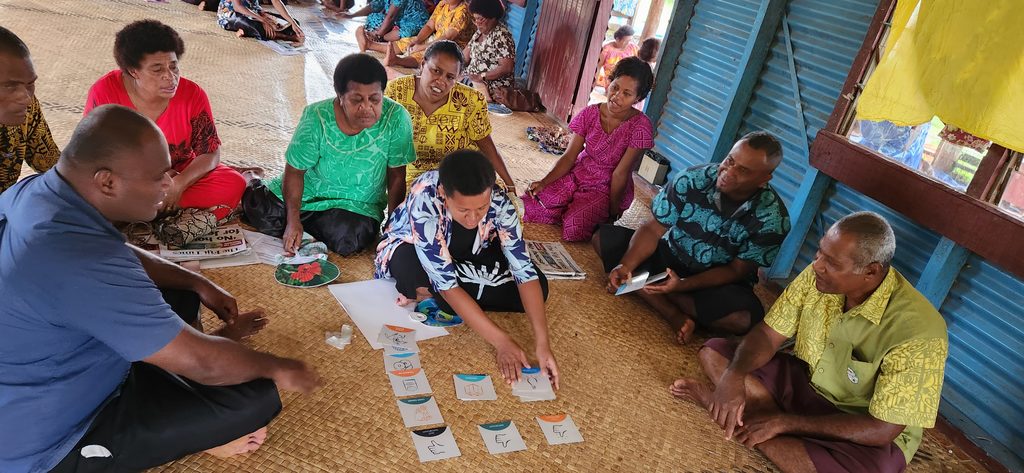OCEAN learning is no longer an option – it is vital. This was a key message shared at a regional conference on “Advancing Ocean Learning: Navigating Knowledge for the Pacific” held in Suva from April 14–16, 2025. The conference was hailed as an opportunity to reaffirm commitments to investing in education, promote lifelong learning, build resilient and skilled Pacific workforces, and ensure Pacific peoples are actively engaged in shaping sustainable marine futures. In this interview with the Pacific-European Union (EU) Marine Partnership (PEUMP) program and the University of the South Pacific as one of four implementing partners of PEUMP, The Fiji Times takes an in-depth look at the work delivered so far in relation to ocean education in Fiji.
FT: How much has been invested into ocean education in Fiji, and what does this look like in terms of implementation?
PEUMP-USP: Under the University of the South Pacific (USP) Pacific-European Union (EU) Marine Partnership (PEUMP) program, a total of €5.714million has been allocated for capacity building across 15 Pacific Island Countries, including Fiji. In terms of implementation, this investment has supported the provision for applied research through scholarships for formal education (four Master’s and four PhD scholarships) and fisheries-focussed research; capacity building through Tertiary and Vocational Educational training (TVET) and Continued Professional Development (CPD) short trainings and outreach programs.
FT: What are the primary challenges of this work?
PEUMP-USP: Limited internet access and the remote nature of many Pacific Islands continue to pose significant challenges. In particular, learners in outer islands often face difficulties in accessing reliable internet, which affects their ability to participate in online courses and complete assessments on time. To overcome these barriers, the PEUMP team adopted a proactive outreach strategy – travelling in-country to provide in-person training and support.
In Fiji, outreach efforts extended to Rotuma, Vanua Levu, the Lau group, and rural areas of Viti Levu. These face-to-face engagements played a crucial role in overcoming both digital and geographic obstacles, ensuring more inclusive access to learning opportunities. In some communities, limited proficiency in English can hinder effective learning. To enhance understanding and engagement, local trainers who speak the native languages are often prioritised, ensuring clearer communication and a more inclusive training experience.
FT: What are some of the impacts of this work to date and how is it contributing to changing mindsets and behaviours?
PEUMP-USP: Increased financial literacy and awareness; improved seafood handling and quality practices; and strengthened capacity in sustainable business development, seafood safety, climate resilience, and effective enforcement and compliance with fisheries policies to ensure long-term sustainability of fishery resources.
FT: In what ways have women, youth and coastal communities in Fiji been engaged as active participants in “shaping sustainable marine futures”?
PEUMP-USP: The PEUMP USP component has supported inclusive approaches in all aspects of research, education and training for coastal communities across our Pacific region through supporting women’s active participation and also the development of educational resources.
FT: How is ocean learning or education being integrated into various levels of education in Fiji?
PEUMP-USP: While this is primarily the remit of the Ministry of Education, ocean literacy is generally mainstreamed into basic science curricula at early childhood, primary, and secondary levels. USP has bachelor’s, Masters and PhD programs within the context of Marine Science and Management. As with USP PEUMP trainings, all trainings are within the context of ocean learning. A recent one developed and offered is Pacific Ocean finance. With focus on the ocean agenda and growing dialogue on the blue economy, this program meets the prioritised need identified by managers and policymakers in the marine sector for accredited regional qualification to improve collective regional understanding of ocean finance, its regional challenges and opportunities to improve ocean finance and identify solutions best suited for the Pacific.
Additionally, it is designed to raise awareness on how social and environmental factors can influence investment decisions and to be better able to direct capital towards ocean activities that support sustainable development goals (SDGs). The purpose is to equip policymakers, managers, and those interested in ocean-related activities with tools and techniques for positively changing mindsets towards improving ocean health and creating long-term economic and social sustainability.
FT: How does inclusive education play a role in ensuring sustainability and the protection of the Pacific Ocean, and what does implementation look like?
PEUMP-USP: It empowers diverse voices: Inclusive education ensures fisherwomen are equipped with the same knowledge and training as their male counterparts, enabling them to actively participate in decision-making and marine resource management. It preserves traditional knowledge: Women often hold valuable traditional ecological knowledge. Inclusive education validates and integrates this knowledge with modern practices, enhancing community-based conservation. It strengthens resilience: Through access to education on climate change, sustainable fishing practices, and financial literacy, women become more resilient and better able to adapt their livelihoods and those of their families to environmental changes. It promotes gender equality in policy and practice: Education fosters awareness about gender roles and rights, helping to shift norms and create more equitable policies in resource and fisheries management.
Inclusive education plays a crucial role in ensuring sustainability and the protection of the Pacific Ocean by equipping all members of the community with the knowledge and skills to address environmental challenges. By integrating traditional ecological knowledge with contemporary science, inclusive education fosters a deeper understanding of sustainable practices such as marine conservation, sustainable fishing, and pollution reduction. Implementation involves adapting curricula to be accessible for all students, empowering youth and women to actively participate in local ocean protection efforts and incorporating cultural values that highlight the interconnectedness of the community and the environment. This holistic approach builds a sense of responsibility and ownership, ensuring that future generations are engaged in safeguarding the Pacific Ocean in an uncertain world.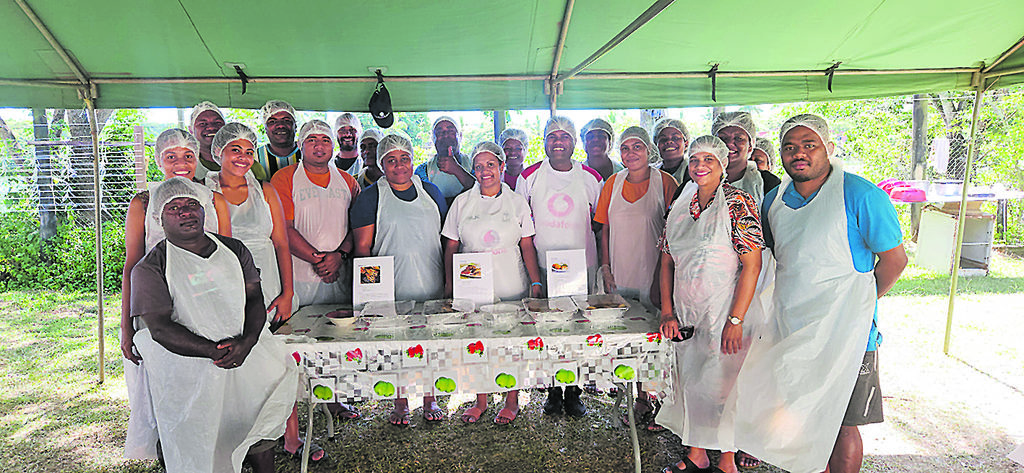
A micro-qualification training on maintaining seafood safety and quality in Labasa held in June 2024.
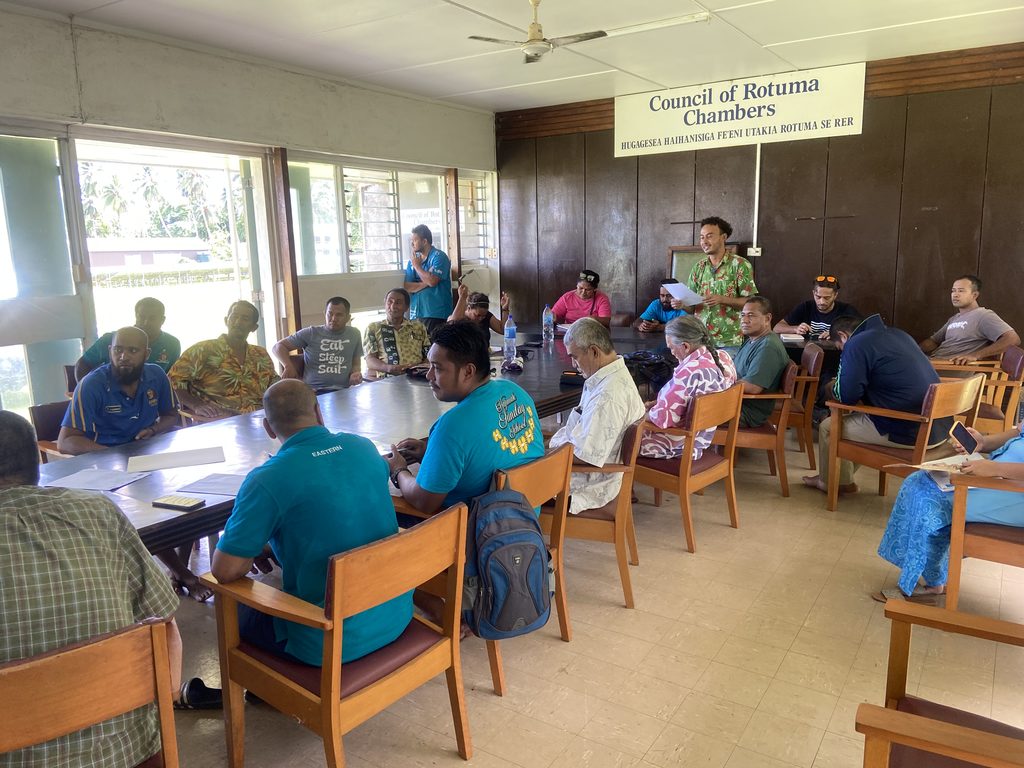
A financial literacy training held in Rotuma on December 2023. Face-to-face engagements help overcome digital and geographic obstacles. Picture: SUPPLIED
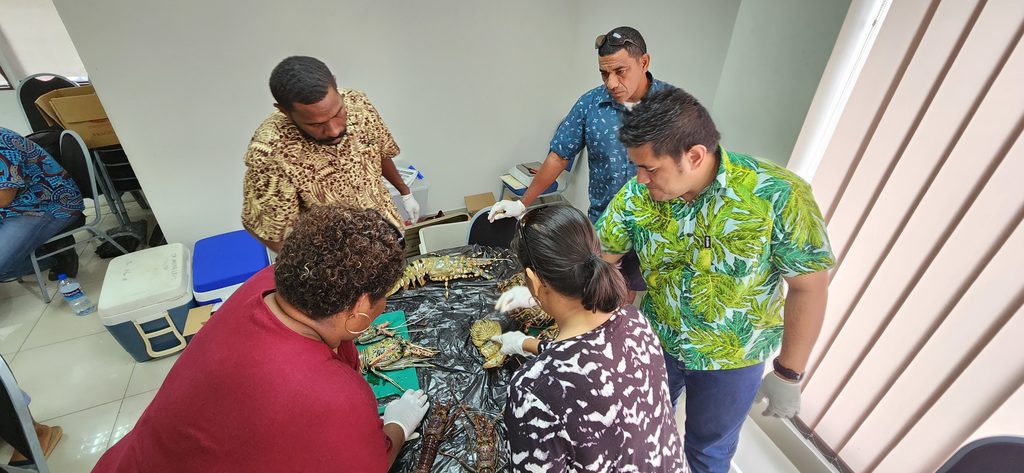
All trainings are within the context of ocean learning. In this picture, a lobster species identification training is in progress. Pictures: SUPPLIED
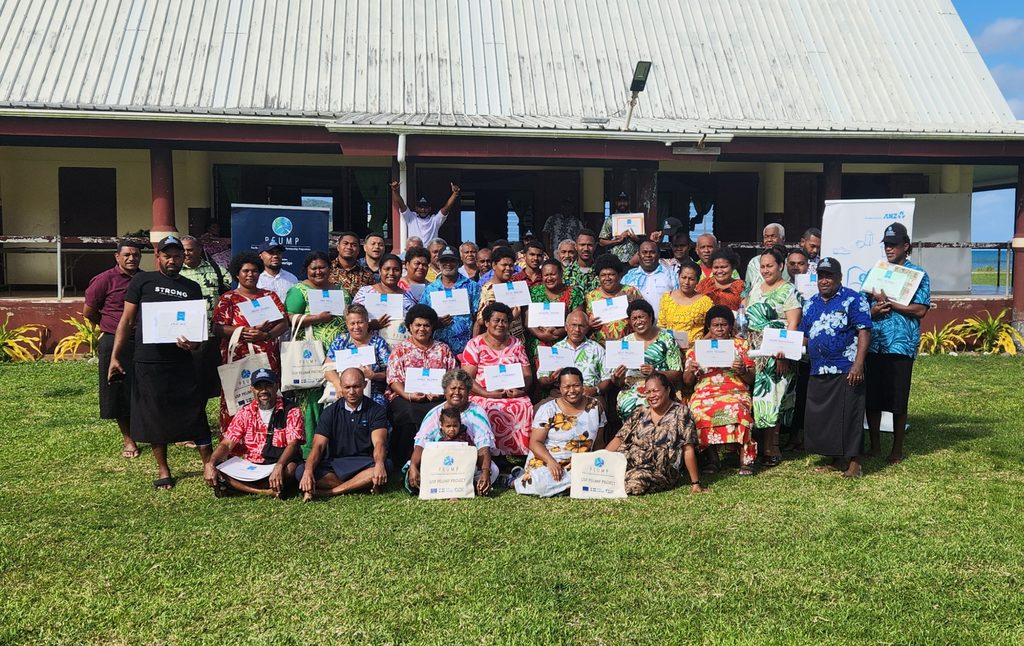
A financial literacy training held in Vanuabalavu, Lau in October 2024. Ocean literacy is mainstreamed into basic science curricula at early childhood, primary, and secondary levels.

